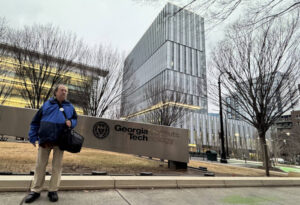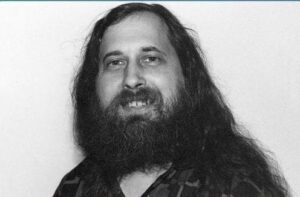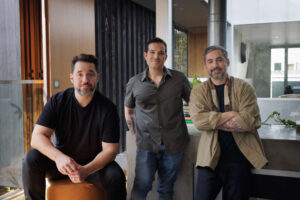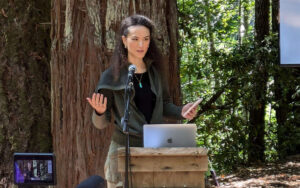After nearly a decade running Mastodon, founder and CEO Eugen Rochko is handing day‑to‑day control to a new executive director. We look at what the change means for users and the fediverse.

Eugene Rochko announced that he was stepping down, after spending over nine years as the CEO of Mastodon, the social networking platform that he started. While most people don’t like change, especially at a project that defied the odds by becoming a popular — and open — program that pretty much works without drama, the result of his stepping down should be more transition than shakeup.
Until last week’s announcement, Rochko pretty much owned Mastodon, and ran it as something of a benevolent dictator. That doesn’t mean that others haven’t had an ownership role too, but in a complicated way. Unlike most other social destinations — X comes immediately to mind — Mastodon isn’t monolithic but is federated. That means that while users see a unified interface that’s not unlike X, it’s really a collection of independently run servers — called “instances,” which is where all user accounts are located.
The platform was first announced in a Hacker News post in late 2016 and began to get traction early the following year. In 2021, Rochko incorporated Mastodon in Germany as a non-profit-style gGmbH, or charitable organization with limited liability. That solidified his ownership of Mastodon, and put him in control of its income, trademarks, and other core assets.
On November 18, in a blog on the Mastodon website, he announced he was stepping down, effective immediately, ending Mastodon’s nine year and four month Rochko era.
“I am stepping down as the CEO of Mastodon and transferring my ownership of the trademark and other assets to the Mastodon non-profit,” he said. “Mastodon is bigger than me, and though the technology we develop on is itself decentralized — with heaps of alternative fediverse projects demonstrating that participation in this ecosystem is possible without our involvement — it benefits our community to ensure that the project itself which so many people have come to love and depend on remains true to its values.”
Royalty likes nothing more than a good speech when abdicating.
Benefiting from Twitter’s Misfortune
It was during Rochko’s tenure as CEO of a bona fide German charitable‑style company instead of the project’s earlier hobby project period that Mastodon experienced a bump in users that took the platform out of also-ran status.
The “Musk surge” started in April 2022 when Musk agreed to buy Twitter, and quickly took the platform to a few thousand new users per day, and then to well over 100,000 per day by the time Musk’s Twitter acquisition closed in October. By the end 2022, the platform had an estimated 2.5 million monthly active users and something like 5.8 million user accounts.
Although the site remains quite active, use of the platform has dropped considerably since the heady numbers put up during Twitter’s last days. These days, Mastodon estimates the platform has about 720,000 monthly active users across 7,800–7,900 servers. Most third party estimates put the total number of Mastodon accounts at over 10 million users.
Mastodon’s post‑surge decline can be summed up as an old-fashioned “panic migration” that partially reversed once the panic faded: a lot of people rushed in during the Musk/Twitter crisis, then many drifted away again because the fediverse was confusing, the culture and moderation norms didn’t suit everyone, and newer alternatives like Bluesky soaked up some of the same “Twitter exile” energy, leaving Mastodon with a smaller but more committed core rather than the inflated peak numbers.
That “committed core” part is important. I jumped onto Mastodon during the period of rapid growth, prompted by Musk’s takeover of Twitter. I’m still there, and these days I split my time just about evenly between Mastodon and Bluesky. I spend a negligible amount of time on X, which has mainly turned boring under Musk. I’ve also all but abandoned Facebook, and only spend a little time there to stay in touch with old friends from late adolescence and early adulthood, some of whom aren’t computer savvy.
Where Mastodon Goes From Here
Mastodon seems to remain in good hands, and in fact might be in better shape than ever.
Largely replacing Rochko is Felix Hlatky, who instead of CEO will be taking the newly created role of executive director. Until early this year, Hlatky was executive director at the Vienna-based software development firm Solarys. For the new position, he was appointed by the board of directors at a US 501(c)(3) that Mastodon established last year, evidently for US fundraising efforts.
Ownership of Mastodon and its assets remain with the German-based entity behind Mastodon.
What this means for the everyday Mastodon user is that it’s likely that little will visibly change, at least not for a while. The platform’s software, apps, and individual servers will continue working as before. Even Rochko is remaining on board as a strategy and product advisor. Over time, users might begin to see some — probably welcome — changes to the platform’s interface and to Mastodon associated apps. Otherwise, the platform will continue to be the viable alternative it’s always been.
“The fediverse is an island within an increasingly dystopian capitalist hellscape,” Rochko said in his abdication post. “And from my perspective, Mastodon is our best shot at bringing this vision of a better future to the masses. This is why I’m sticking around, albeit in a more advisory, and less public, role.”
Christine Hall has been a journalist since 1971. In 2001, she began writing a weekly consumer computer column and started covering Linux and FOSS in 2002 after making the switch to GNU/Linux. Follow her on Twitter: @BrideOfLinux






